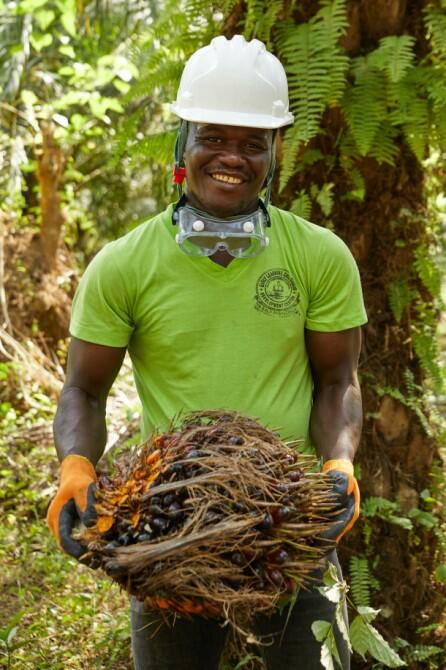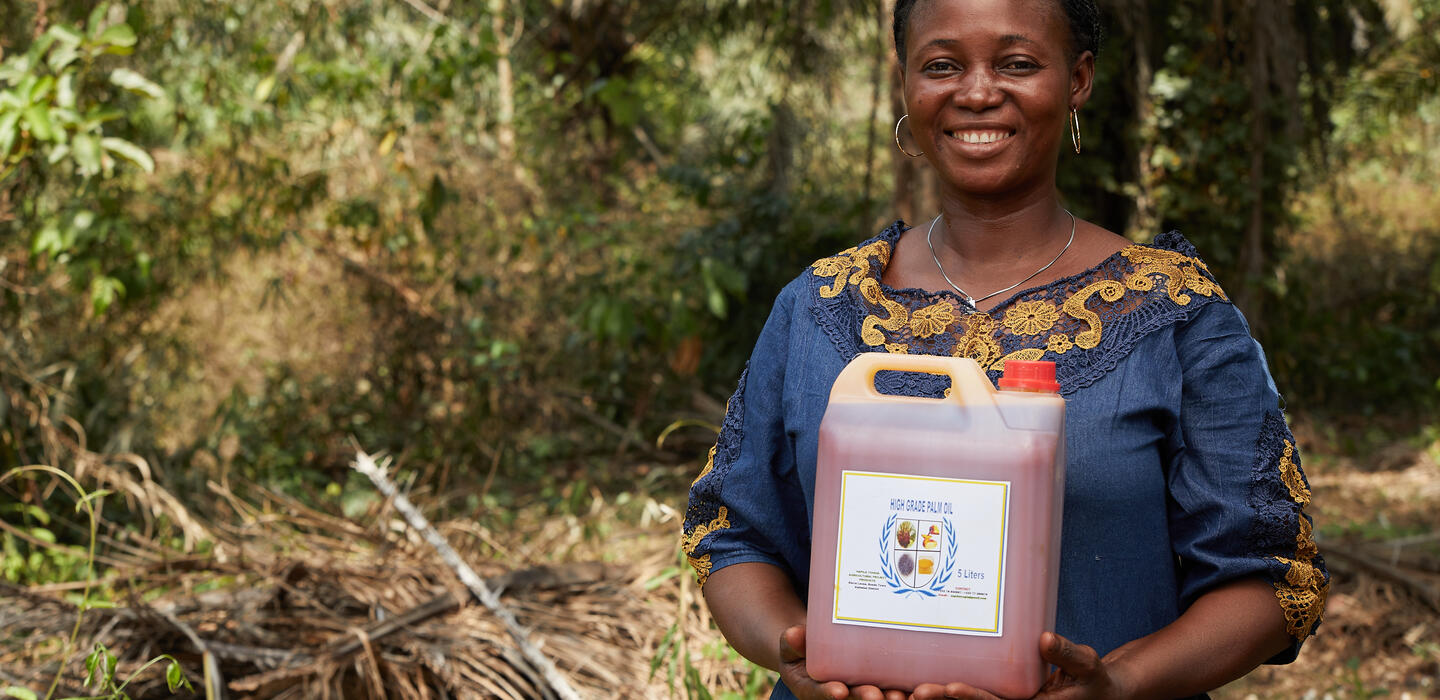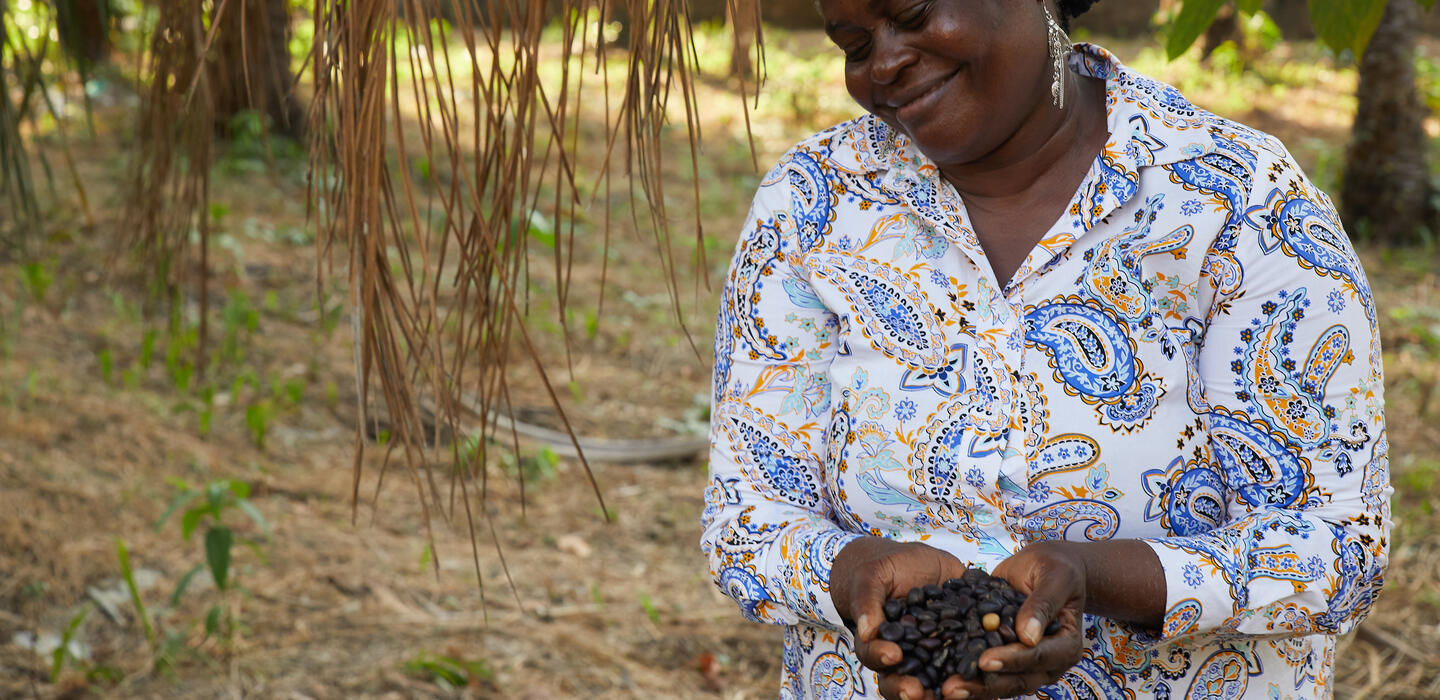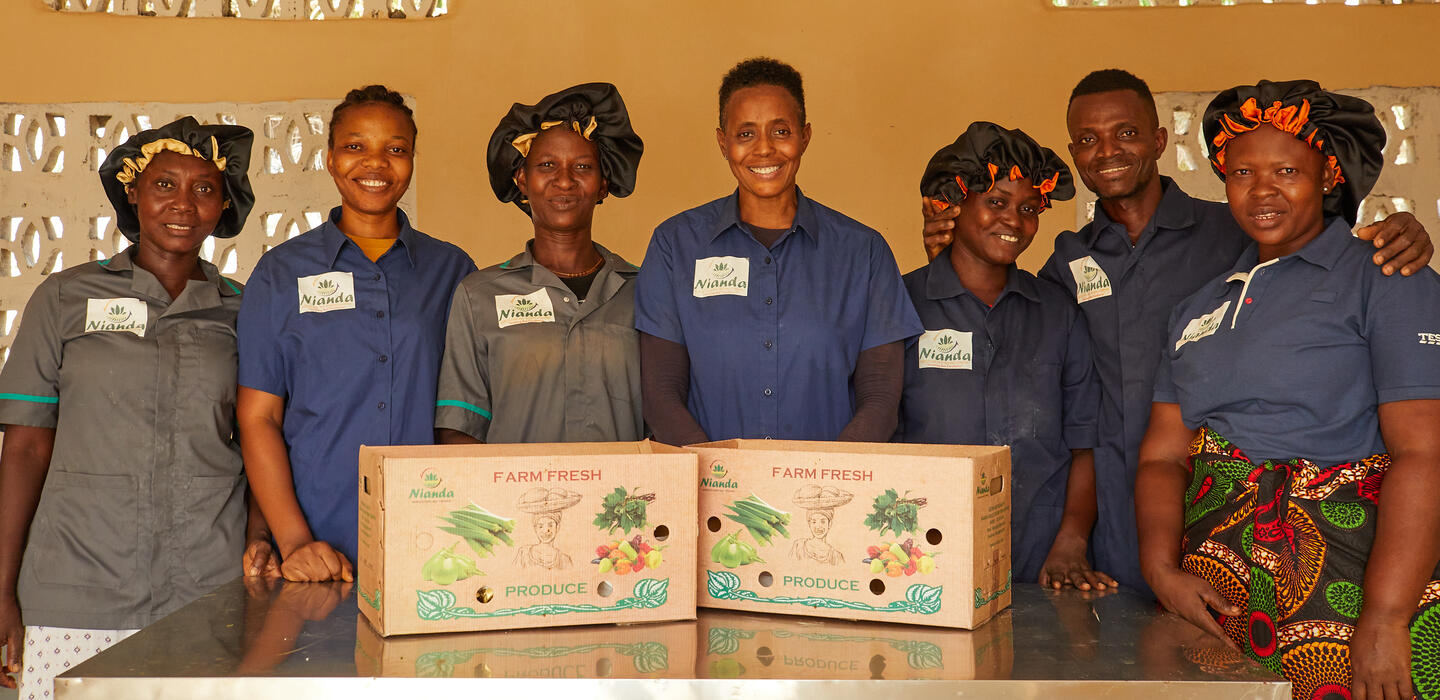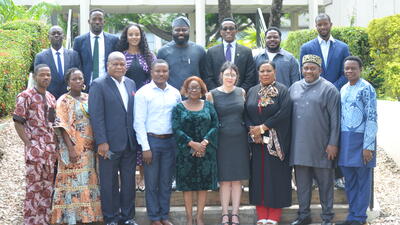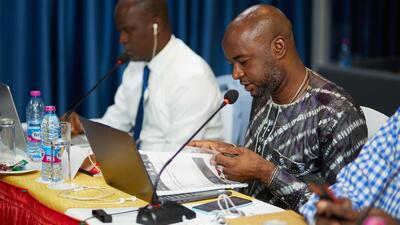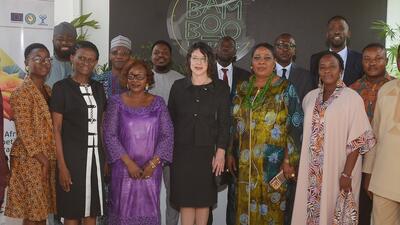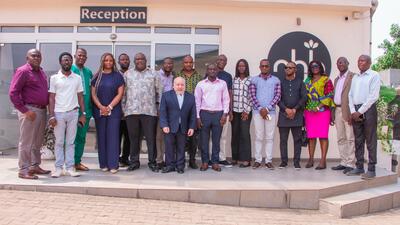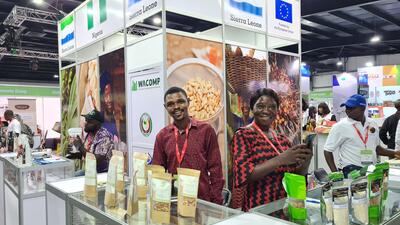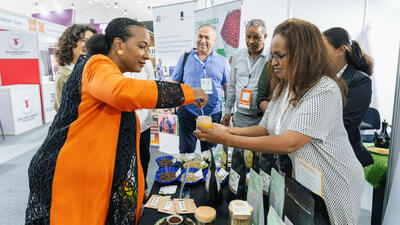
Cultivating change in palm oil
Goldtree in Sierra Leone has revived an oil palm plantation with an innovative model where their own harvests are supplemented by hundreds of farm families who work smaller plots.
Many of those independent smallholders have achieved a key global certification from the Roundtable on Sustainable Palm Oil (RSPO). Palm oil is one of the world’s most versatile crops, used in cooking but also in a wide range of household products like soaps and detergents. Demand for the crop has harmed communities and the environment in places without good standards. The RSPO certification recognizes that these farms in Sierra Leone ensure wildlife, the environment and human rights are respected in all of their work.
At the International Trade Centre, Sierra Leone's West Africa Competitiveness Programme (WACOMP) brought other farmers on a study tour on 28 April 2023 to learn how they too can achieve those best practices.
Establishing new benchmarks
‘All these practices are proving to be an improvement to the productivity of the farm,’ said Momodu Koroma, of Penayama Agricultural Enterprises.
‘Penayama benefitted significantly from some of the agronomic practices, such as the improved methods of pruning the palm trees, the improved methods of harvesting the fruits and the management of the palm fronds after trimming.’
The field trip built on a series of trainings that began in 2022.
Sandy Motonko of Montokoh Tropical Farms celebrated the newfound efficiency learned from Koroma's farm.
Their desire to establish a connection with Andrew Kojo Morrison, who owns the farm, vividly demonstrates the industry’s collaborative ethos. In addition, Shiaka Kawa, the National Coordinator in Sierra Leone, said the practical training included valuable tips on pruning oil palm frond so they can be turned into organic fertilizer.
Opening doors to new collaborations
The new connections with Goldtree opened the door to possible collaborations as others seek RSPO certification. Mohammed Koroma from palm oil producer Leoneans Investment said they’re actively sharing best management practices with small-scale oil palm farmers.
This initiative aligns with WACOMP's overarching mission to bring sustainable economic growth throughout West Africa. By encouraging small businesses to process crops locally, they can export their products at higher prices.
‘Our company is currently sourcing oil palm from our farm and also from out-growers,’ said Noellen Barber of Nianda Agriculture and Trading Company. ‘Before attending the various trainings, our level of production and processing was very low, which greatly affected our export quota. After attending both pieces of training, our company developed a basic oil palm training manual that included key best management practices such as pruning, pest, and disease management.’
From learning to action: Transformation in the industry
The companies also attended Food and Beverage West Africa (FAB), one of the region’s most important trade fairs, in Lagos. During the event, they showed their commitment to excellence in palm oil cultivation and processing.
However, new EU regulations pose a challenge as they come with substantial costs for acquiring RSPO certification and adhering to new EU guidelines. But the companies are seeking innovative solutions to overcome these challenges and achieve their certification.
These companies are changing the palm oil industry.
About the project
The West African Competitiveness Programme (WACOMP) in Sierra Leone aims to enhance the competitiveness of the cocoa, palm oil and cassava sectors to boost the country's connection to regional and global value chains, create more jobs and strengthen its resilience against economic chocs. It is funded by the European Union and implemented in partnership with UNIDO.




